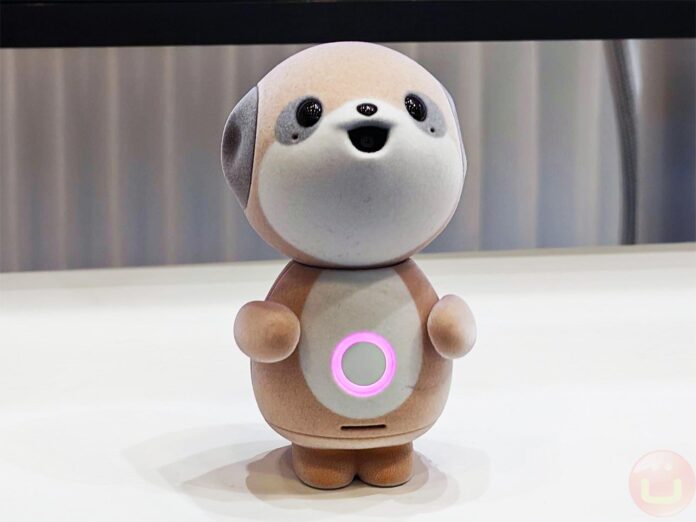At CEATEC 2025, Sharp drew considerable attention with Poketomo, a palm-sized AI companion that blurs the line between toy, robot, and emotional assistant. Announced in August 2025 and now showcased publicly for the first time, this 11.7 cm-tall, meerkat-inspired robot embodies Sharp’s long-term vision of “Empathy Intelligence” — technology designed not just to answer questions but to feel present in daily life.
The company describes it as “a pocket-sized friend that makes everyday life more fun and exciting.” But behind the cute design lies a surprisingly advanced combination of on-device AI, natural-language interaction, memory, and emotion-sensing algorithms. The name itself merges “pocket” and “tomodachi” (friend in Japanese), encapsulating Sharp’s ambition: to create a tiny AI friend that truly grows with you.
CE-LLM: Sharp’s Original Empathy AI Technology
Poketomo runs on Sharp’s proprietary CE-LLM (Communication and Empathy Large Language Model), an AI engine developed specifically for emotionally aware interaction. Unlike most digital assistants that sound mechanical, CE-LLM adapts its tone, rhythm, and phrasing to mirror a user’s mood — it can laugh, sigh, or sound sympathetic depending on how you speak.
This real-time emotional tuning is part of what Sharp calls Empathy Intelligence, and during demonstrations at CEATEC, Poketomo didn’t just answer questions — it reacted to feelings. When someone spoke softly, it responded gently; when laughter filled the room, it giggled back. That subtle human-like connection is what sets it apart from ordinary chatbots.
Always by Your Side
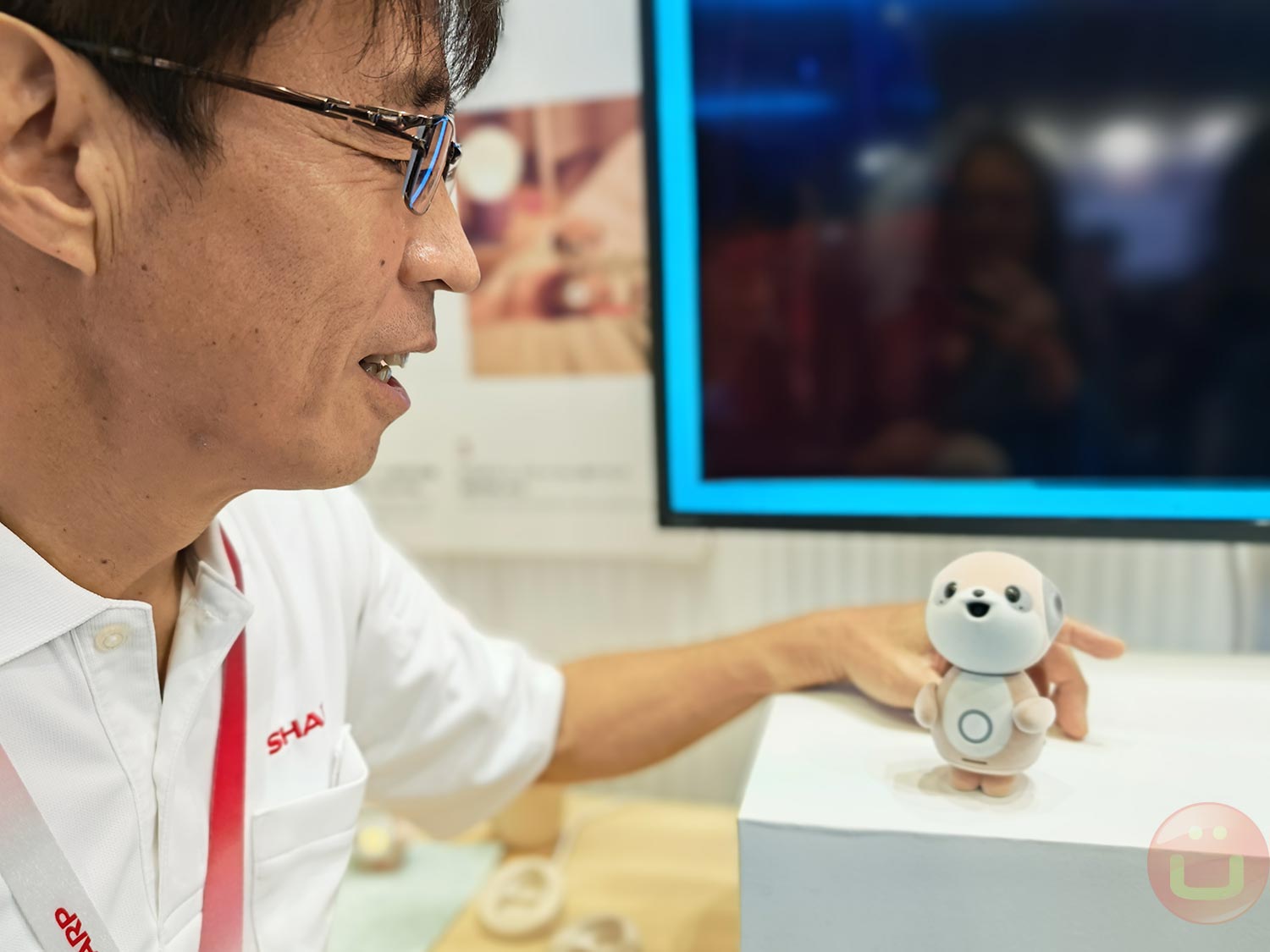
Interacting with Poketomo: when hearing “look, look” in Japanese, the tiny empathic robot shot a photo
Designed to “stay by your side and lift your spirits,” Poketomo serves as a talk-mate whenever you want to share a thought, chat about your favorite idol, or simply talk through your day. Unlike voice assistants that live inside smartphones, Poketomo physically exists — a tiny, expressive creature that makes companionship tangible.
At just 194 grams, it fits comfortably in the palm of your hand. The robot has a speaker, microphone array, and a camera hidden behind its eyes. Saying “Look, look” in Japanese (見て、見て!) prompts it to take a picture. It can even recognize faces and greet people it has met before — for example, “Nice to meet you again.”
Its compact size makes it easy to carry around, yet it feels surprisingly alive thanks to subtle servo-driven movements and emotional voice feedback.
Hardware & Performance Specs
Inside its small 11.7 cm frame, Poketomo packs impressive hardware performance for such a tiny AI companion. It runs on a Qualcomm Snapdragon 662 octa-core processor (2.0 GHz × 4 + 1.8 GHz × 4) paired with 3 GB of RAM and 32 GB of internal storage, providing the responsiveness needed for real-time voice recognition, facial identification, and emotion-aware conversations. A 5-megapixel autofocus camera enables face and object recognition, while four servo motors — two in the face and two in the arms — bring its expressive gestures to life.
Connectivity options include Wi-Fi (IEEE 802.11 a/b/g/n/ac) and Bluetooth 5.0, with built-in GPS for location-based memory recall. A suite of acceleration, geomagnetic, and gyro sensors helps the robot understand orientation and movement, while dual microphones and a speaker support natural conversations. Power comes from a 1,070 mAh battery that lasts over a full day and recharges in about 100 minutes via USB-C or the included charging cradle.
Physically, the robot measures 117 mm tall and weighs approximately 194 grams, small enough to rest on your palm yet substantial enough to feel like a real companion. It includes a power button, a voice-recognition trigger, and a manners switch for muting during quiet times. Although it lacks LTE or waterproofing, the combination of mobile-class silicon, multi-axis sensors, and lifelike motion actuators makes it far more advanced than a typical toy.
Read complete hardware specifications in Japanese on KDDI’s onlineshop.au.com.)
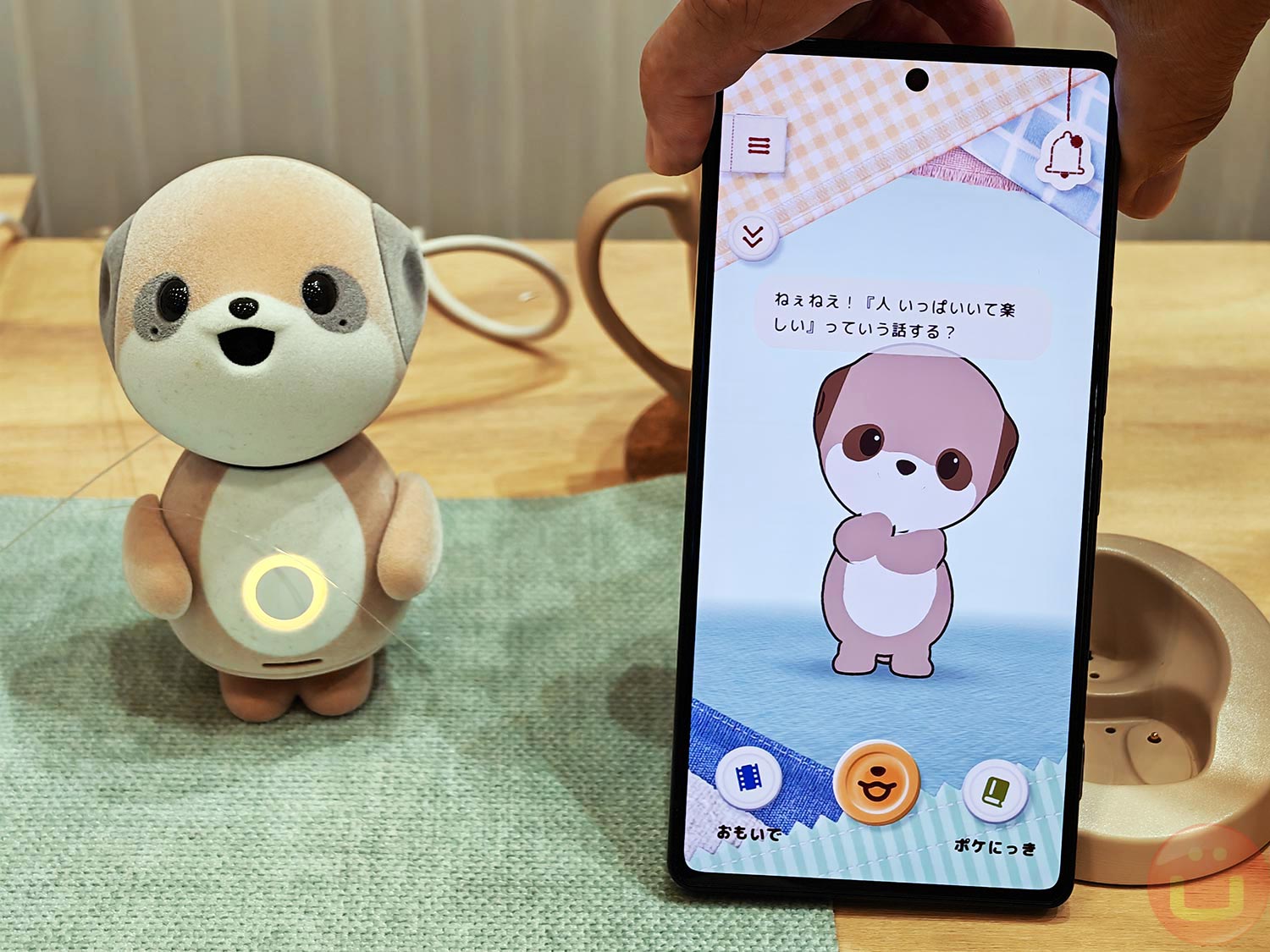
A Tool for Connection — and Reflection
During Sharp’s CEATEC briefing, representatives highlighted Poketomo’s potential to support emotional well-being, particularly among people who live alone. The device encourages gentle daily check-ins, asks about your day, and recalls shared moments — for example, “Remember the park we went to yesterday?” This continuous memory creation positions Poketomo as more than a novelty toy: it’s a conversational partner that captures the rhythm of your life.
The ability to replay and revisit past exchanges also supports elderly users, who can review their conversations, locations, and memories through the companion app. It is part friend, part diary — an unusual fusion of companionship and digital journaling.
ChatGPT Inside: Learning Beyond Pre-Programmed Replies
Another standout feature is Poketomo’s ChatGPT integration via Wi-Fi. Users can ask general knowledge questions, get trivia, or learn new things — just like interacting with a conversational AI on a smartphone — except this one looks at you and talks back. The dual AI approach means Poketomo combines Sharp’s CE-LLM empathy model with OpenAI’s knowledge engine, merging personality and intelligence in a single device.
During the CEATEC demo, Poketomo switched effortlessly between listening to emotions and answering factual questions. It’s a playful example of how cloud-connected AI can enrich daily life — not just by being useful, but by being attentive.
Targeting Young Adults and Beyond
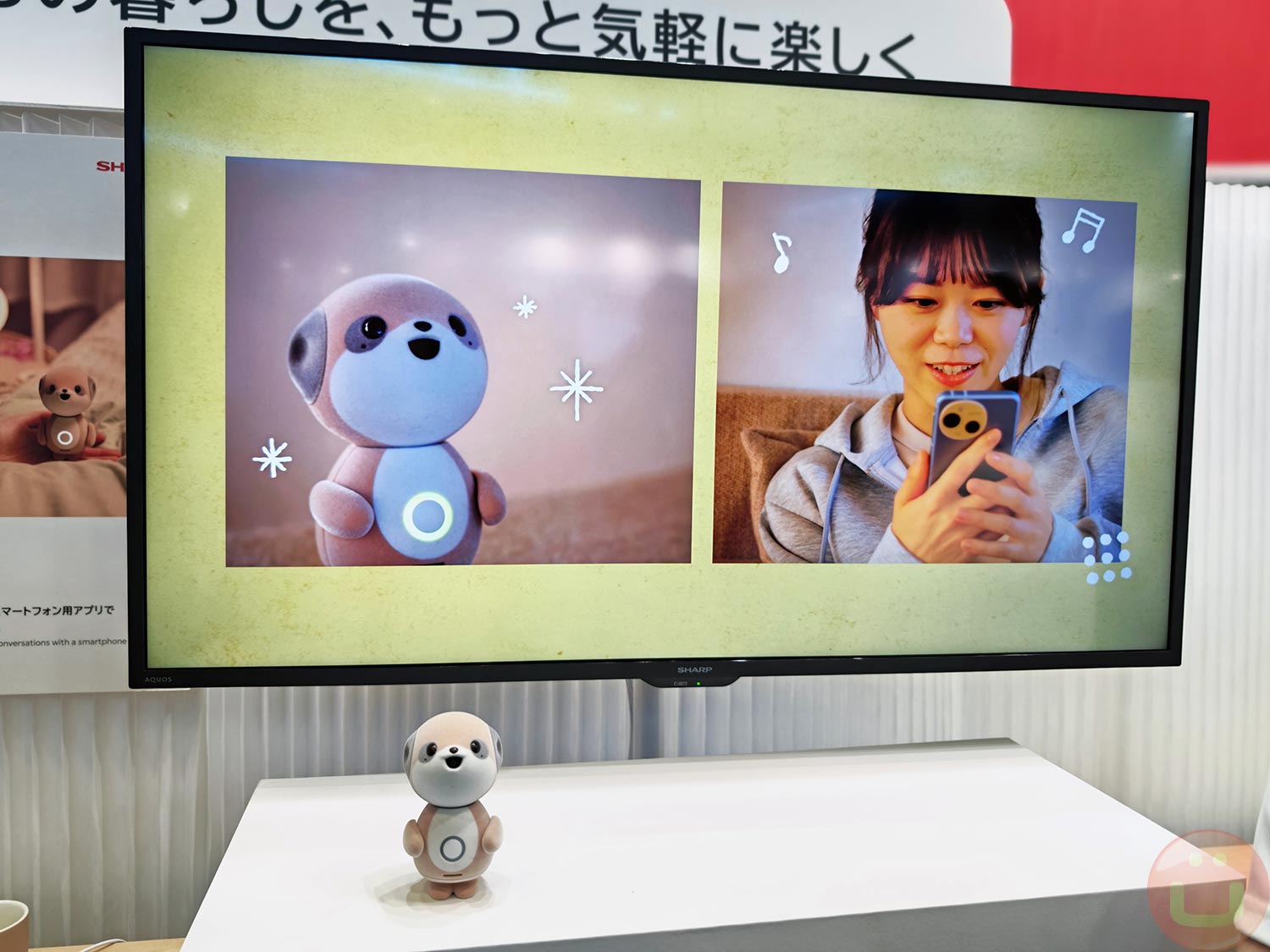 Sharp confirmed that the first version of Poketomo is targeted mainly at young women in their 20s and 30s, following the growing trend of “AI toy friends” that serve as emotional companions and self-expression tools. These compact AI partners offer a comforting sense of presence — a kind of soft technology that listens, reacts, and remembers.
Sharp confirmed that the first version of Poketomo is targeted mainly at young women in their 20s and 30s, following the growing trend of “AI toy friends” that serve as emotional companions and self-expression tools. These compact AI partners offer a comforting sense of presence — a kind of soft technology that listens, reacts, and remembers.
As one Sharp representative explained, “It’s trendy for young people to bring their own toy friend with them.” While initial sales will focus on Japan, Sharp is evaluating international markets as demand for emotional AI devices continues to expand globally.
My take on this device is that it addresses a universal need for human connection — something modern industrial societies increasingly struggle with, especially in the wake of global isolation during the pandemic. Beyond its cute appearance, Poketomo provides emotional continuity: it listens, remembers, and evolves with its owner in a way that most digital assistants cannot.
The entire world is also facing an aging population, not just one region. As lifespans lengthen and social structures evolve, the demand for emotionally intelligent, interactive companions is becoming a global challenge. In this broader context, Poketomo represents more than entertainment — it could become an important social and wellness support system.
For elderly users, I can envision Poketomo evolving beyond companionship — helping with daily reminders, cognitive health exercises, and even safety features such as pain or fall detection, if Sharp expands its AI platform accordingly. These possibilities align with the company’s growing focus on empathy-based AI ecosystems and suggest a meaningful roadmap where robots contribute to emotional well-being and personal safety alike.
In my view, Poketomo’s empathy-driven interaction model could, in theory, support children or neurodiverse users, including those on the autism spectrum. It is important to note that Sharp has not announced or implied any such applications. However, prior research and commercial efforts in human-robot interaction have shown that emotionally aware robots can encourage communication, reduce anxiety, and promote confidence — areas where Sharp’s underlying technology might someday find meaningful extensions.
From Emotional Robots to Empathic Ecosystems
Poketomo’s introduction also marks a new chapter in Sharp’s broader strategy. Over recent years, the company has been re-positioning itself from a pure hardware maker to an AI-driven platform provider. The CE-LLM architecture powering Poketomo could appear in future home appliances or service robots, extending empathy-based interaction across Sharp’s product ecosystem.
The company has already developed enterprise-grade AR glasses for industrial maintenance and museum guidance, applying similar contextual-AI logic. Poketomo represents the same concept — but reimagined for daily emotional engagement.
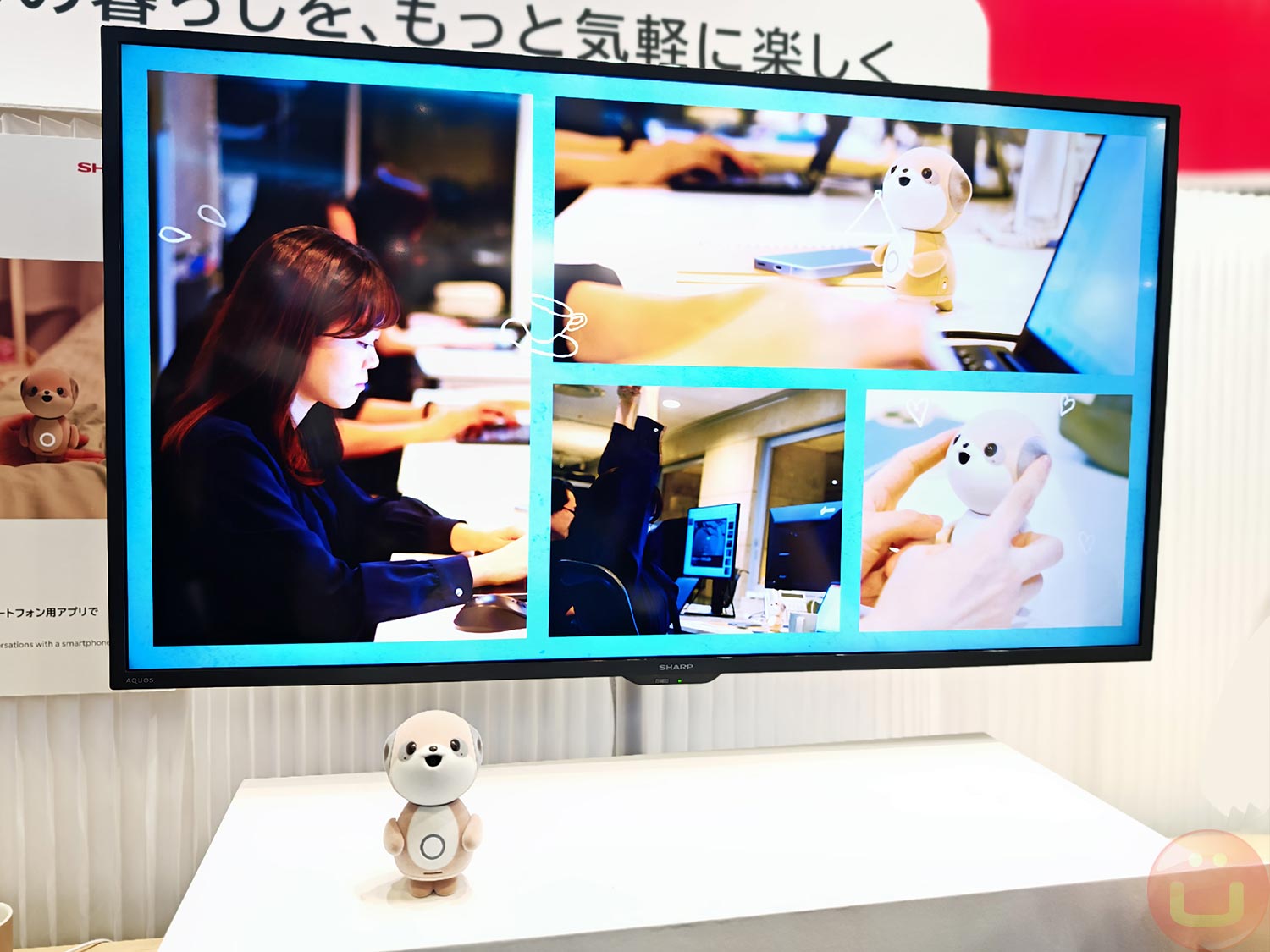
Availability and Subscription Plans
According to Sharp’s official press release from August 20, 2025, “Pre-orders for the Poketomo started on that day.” As of late October 2025, Poketomo is available for purchase through the Sharp Cocoro Store at a retail price of ¥39,600 (≈ US $259). You can find more information in Japanese on the official website: https://poketomo.com
To enable Poketomo’s conversation and memory functions, users must subscribe to the Kokoro Plan for Poketomo, which connects the robot to Sharp’s conversation-memory cloud. Two monthly options are available:
- Normal Plan – ¥495 per month (tax included): Up to 400 conversations per month
- Premium Plan – ¥990 per month (tax included): Up to 800 conversations per month
Subscribers can switch between plans at any time in the companion app or in their Cocoro Store account settings. These plans allow Poketomo to remember interactions, store shared experiences, and continue personalized conversations — reinforcing its role as a long-term emotional companion rather than a short-lived gadget.
A Glimpse Into the Future of AI Companionship
As social robots gain traction worldwide, Sharp’s approach stands out for its mix of empathy, privacy, and simplicity. Unlike fully cloud-dependent bots, Poketomo stores many interactions locally while using the cloud only for advanced reasoning. This hybrid design keeps conversations fast and private.
Moreover, the character design — beginning with a meerkat — gives Poketomo a distinctive identity. Sharp even publishes Poketomo manga comics on its official X (formerly Twitter) page, connecting the robot’s digital storytelling with its real-world presence.
At CEATEC 2025, amid industrial robots and advanced AI systems, Poketomo stood out for one reason — its humanity. It may be small and playful, but its foundation of empathy-driven AI paired with mobile-class hardware hints at a much larger ambition.
In a world where AI often feels distant or utilitarian, Sharp’s Poketomo offers a warmer vision: a companion that listens, learns, remembers, and even laughs with you. Whether it becomes a niche collectible or the start of a new category of emotional AI devices, it’s undeniably a heartfelt step toward technology that genuinely understands us.
Filed in . Read more about CEATEC, ChatGPT, Japan, Kddi, Manga, Qualcomm, Robot, Robotics, Sharp, Snapdragon and Toy.

